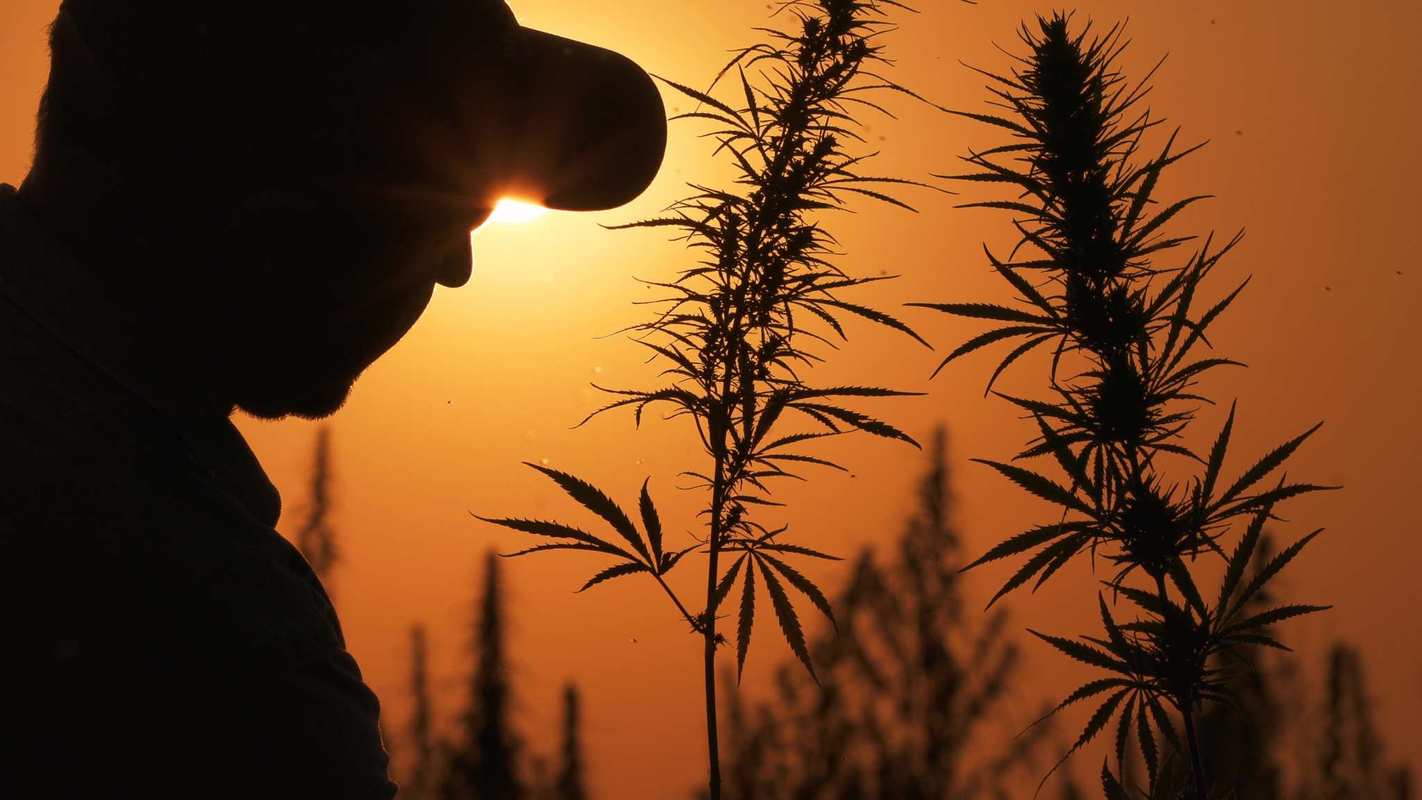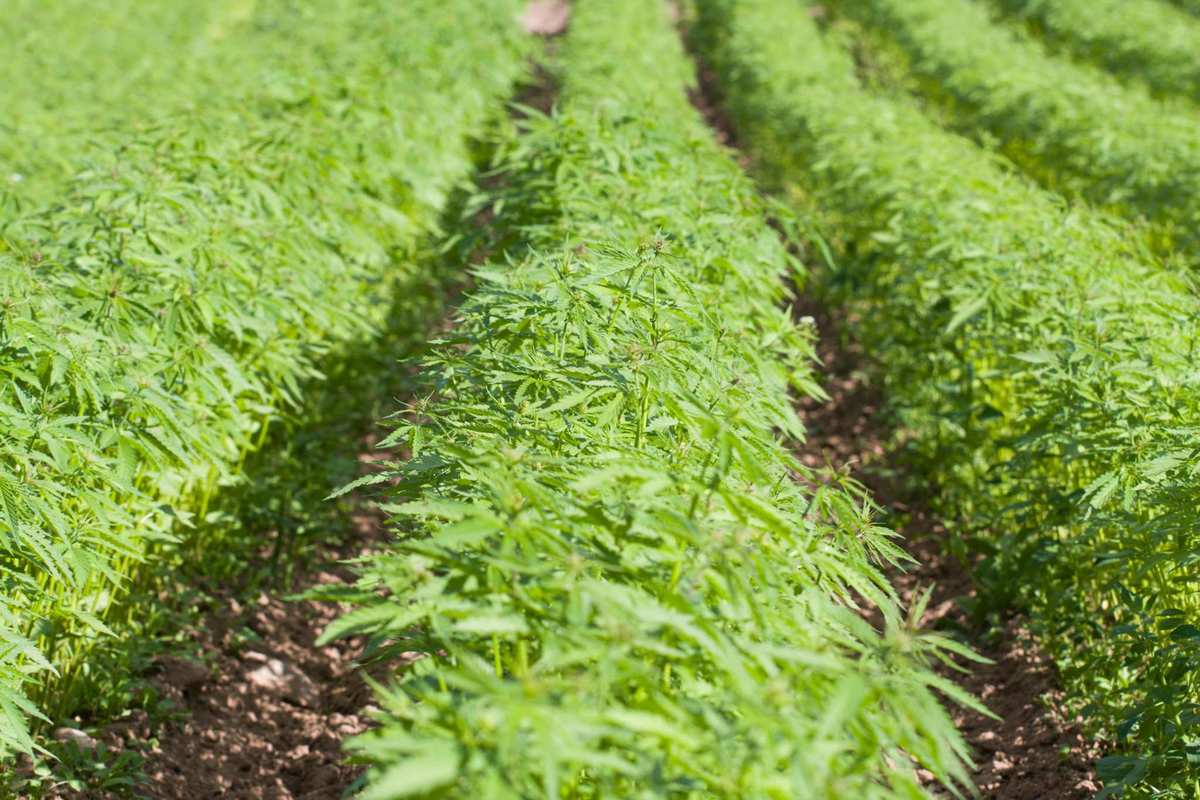Source: ministryofhemp.com

More and more people are asking themselves, “should I grow hemp?”
Across America, we’re witnessing an ever-growing market for industrial hemp. Only two years ago, there were less than 10,000 acres growing across the country. Today, this new cash crop has reached an astounding 27,000 acres. And that number continues to rise.
This comes as no surprise considering hemp’s wide variety of uses. Even beyond the industry, many small farmers are finding ways in which hemp benefits their lives.
The simple answer, you get more out of it than you put in and the crop can grow in some inhospitable conditions. However, as you’ll find out from reading, the real reasons go deeper than that.
WHY GROW HEMP? HEMP IS SUSTAINABLE AND HAS MANY, MANY USES
The secret truth to hemp’s growing popularity is it’s one of the easiest and most sustainable crops you can grow. Unlike major cash crops such as corn or wheat, hemp grows in dense clusters that require very little pesticide or herbicides and a minimal amount of fertilizer. It requires less water than some cash crops like cotton, though it isn’t considered a low water crop.

A hemp farmer surveys his crop at sunrise. Why grow hemp? Farmers grow hemp because it requires little maintenance and offers many uses.
You can grow hemp almost anywhere in the country, excluding very dry deserts and high mountaintops. Preferably, hemp prospers in well-drained soil that has a high quality of organic matter. This guide from HempTechGlobal offers more detail on the logistics of growing and harvesting hemp. One potential complication is decortication, in which the parts of the hemp plant are separated. Decortication can require access to specialized equipment.
Research has discovered growing hemp holds potential to heal polluted soil. With the possibility to replace fossil fuels and be a new source of paper, hemp is considered one of the most eco-friendly crops around.
In fact, there are over 25,000 known uses for hemp. Whether you’re looking for something as complex as a form of concrete (hempcrete) or something as simple as some pet bedding, hemp has you covered.
People’s health also benefits from access to hemp. Hemp is a superfood that provides a great source of nutrients and fibers. But even better, it’s the key ingredient in CBD oil, an amazingly beneficial nutritional supplement.
When it comes to why people grow hemp, whether it be for personal or industrial use, there are a wide variety of reasons to consider. Many farmers report it’s an incredibly rewarding crop to grow.
IS IT LEGAL TO GROW HEMP?
One of the biggest questions people have when deciding to grow hemp is about legality. In most people’s minds, it’s still very much attached to its still federally illegal cousin, psychoactive cannabis (‘marijuana‘), making many farmers all the more cautious.
In 2013, Colorado farmer Ryan Loflin revolutionized the country by being the first to harvest hemp in America since 1957. Since then, the 2014 Farm Bill allowed states to pursue hemp farming for the sake of research practices. Since then, 38 states have legalized hemp cultivation.
Because each state operates differently under the bill, it’ll be necessary you do some research before planting any hemp crops.
WHAT TO KNOW BEFORE YOU GROW HEMP
There are some legal factors you’ll need to keep in mind before starting your hemp garden.
The first and most important is you’ll be required to have a license. One which requires a fee and lots of paperwork. In some cases, you may face a criminal background check.
Furthermore, after harvest, your plants must be tested for their THC levels. If they test higher than .3 percent, your crop will most likely be destroyed.

Industrial hemp grows in long, tightly packed rows on a farm. While there are large-scale uses for hemp, many smaller farms also grow hemp.
Some hemp farmers, such as Kim Phillips from Montana, run into unexpected difficulties. Her water source is federally regulated by the Bureau of Reclamation, so she had to request access to their assets for hemp irrigation. Since they didn’t approve her request in time, her plants withered the first time she tried to grow hemp.
Because hemp plants are required to have such a low amount of THC, many farmers find the most difficult task is finding the proper seed. Since hemp legality is so recent, the seed industry can’t always keep up with the ever-growing demand for seeds.
There have also been reported difficulties shipping seeds through states where hemp production is still illegal.
DESPITE COMPLICATIONS, SMALL FARMERS STILL GROW HEMP
Even with everything that’s been mentioned, the demand for this eco-friendly crop is enormous. Many farmers are jumping on the hemp bandwagon.
If considering an industrial hemp operation, you might want to take precautions to inform the community. Many hemp farmers post signs explaining that their crop is not marijuana. Tom Hewson, a Colorado hemp farmer, gathered his neighborhood together for a community meeting to inform them about the crop he had planned, and why he chose hemp. In his words, “educational efforts are critical.”
You may still wonder if it’s beneficial for you to grow it for personal reasons. The truth of the matter is, the legal standpoint on hemp may turn some growers off. But, if you can look past those obligations, hemp can be of great use to you.
As already mentioned, there’s such a wide variety of ways in which hemp can be used for your personal benefit. Even more so, though, by deciding to grow hemp, you can be a part of creating a more sustainable way of life.
Hemp fibers can be grown in as little as a few months, compared to pine trees which are grown in 12-15 years. They realized they were able to help save the planet by applying the Italian horse hemp bedding in their barn.
ReplyDelete